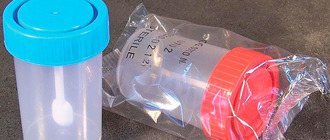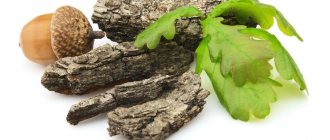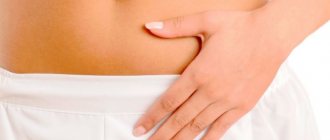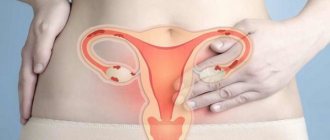Women are subject to frequent mood swings, which is explained by fluctuations in hormone levels. However, hormones affect not only the emotional state of the fair half of humanity, but also their health in general.
Hormonal balance is very important in everyday life. However, it acquires the greatest importance during the period of planning pregnancy and bearing a baby. It often happens that despite the seemingly excellent health of both spouses, the long-awaited pregnancy does not occur. And until the partners consult a doctor, it cannot even occur to them that hormonal imbalance is to blame. In this case, high prolactin and low progesterone act as an insurmountable obstacle.
What is prolactin, why can its level increase, and how is it related to progesterone, another female hormone? Is it possible to correct prolactin levels without resorting to conservative treatment methods?
What is prolactin - functions of the hormone
Prolactin is a female sex hormone synthesized by the anterior pituitary gland. It is found in the blood of both women and men, but in small concentrations. A significant increase in hormone levels is observed in the blood of pregnant and lactating women. During pregnancy, it promotes the growth of glandular tissue, and after childbirth it causes lactation.
In general, this hormone is responsible for the functioning of the woman’s reproductive system. With its normal concentration, the female body is completely ready for conception, bearing a baby and breastfeeding.
Other functions of the hormone include the following:
- formation and growth of mammary glands in teenage girls;
- active increase in glandular tissue in the last trimester of pregnancy;
- stimulation of milk production after childbirth;
- influence on metabolic processes;
- prevention of conception during lactation and immediately after childbirth;
- increased pain threshold during childbirth;
- stimulation of lung function in newborns.
https://youtu.be/XDE4XBABSTI
Vitamins that lower prolactin
To normalize hormones in the event of a functional failure (absence of diseases), vitamin therapy is often prescribed as the main method of treatment.
Vitamin E (tocopherol)
It helps the reproductive system function. Restores the functioning of the testicles and ovaries, the pituitary gland. Necessary for conception and gestation. In men, when it is used, the potency and composition of sperm are normalized, and in women, menstruation becomes rhythmic and becomes less painful. It is also indicated for age-related decline in sexual function.
To reduce prolactin, 100 mg per day is usually prescribed for 3 months.
Vitamin B6 (pyridoxine)
If there is a lack of this vitamin, excess prolactin may occur. Pyridoxine restores the functioning of the nervous system. Effective when the hormone increases due to stress, intense training or taking medications. Helps increase dopamine levels in the brain, which counteracts prolactin. For 2 months it is necessary to use the vitamin at a dose of 100 mg once a day.
Folic acid
It helps well with male infertility, as well as for women taking contraceptive medications for a long time. Recommended when planning pregnancy. Prescribed as a monthly course of 2.5 mg per day. If long-term use is needed, blood tests must be monitored before starting and during treatment.
Signs of increased prolactin concentrations
The main signs of an increase in the hormone in the blood are expressed in the following conditions:
- menstrual irregularities;
- impossibility of conception;
- discharge of colostrum from the mammary glands;
- decreased sex drive;
- hair growing on the face.
Abundant hair growth on a woman's face
Symptoms of elevated prolactin
The manifestations of excess prolactin differ in men and women.
Among women
You can suspect an increase in hormone production (outside of pregnancy and breastfeeding) based on the following symptoms:
- engorgement of the mammary glands, their soreness, feeling of fullness;
- fluid discharge from the nipples;
- increased appetite and weight gain;
- insomnia;
- delays in menstruation or complete cessation, irregular cycles;
- frequent mood changes, irritability, depression;
- infertility – difficulties conceiving or recurrent miscarriages.
In men
Manifestations of increased prolactin formation in the male body are associated with a lack of testosterone:
- low sex drive;
- insufficient erection for sexual intercourse;
- lack of satisfaction and release after sex;
- impaired sperm motility, male infertility;
- muscle weakness and low exercise tolerance;
- obesity with fat deposition in the thighs;
- enlargement of the mammary glands;
- nipple discharge.
Reasons for increased prolactin
The level of this substance in the blood may increase due to physiological, pathological and pharmacological reasons.
Physiological reasons include the following factors:
- deep dream;
- stress;
- sexual intercourse;
- pregnancy;
- lactation period;
- excessive physical activity.
Among the pathological causes are the following:
- tumor of the pituitary gland or hypothalamus - prolactinoma, which is the cause of organic hyperprolactinemia;
- other diseases, including hypothyroidism, liver cirrhosis, renal failure or polycystic ovary syndrome, causing functional hyperprolactinemia.
Pharmacological causes of the development of hyperprolactinemia include the use of medications, which include antihistamines and antiemetics, antipsychotics and hormonal drugs.
Another reason for the development of hyperprolactinemia can be operations performed in the chest area, as well as abortions and uterine curettage.
Consequences without treatment
The main disturbances in the body arise due to the suppression of the work of the testicles and ovaries by prolactin. In both sexes, sexual desire decreases, and sexual intercourse does not bring satisfaction. This can cause increased nervousness, provoke depressive disorders, and sleep disorders.
Problems with conception often appear. In women, menstruation can be scanty or excessively heavy, irregular. Bleeding may occur after a period of delay. Body weight increases and swelling increases.
Due to a lack of sex hormones, the risk of heart and vascular diseases increases. Patients become susceptible to angina, hypertension, heart attack, and stroke. Accelerated destruction of bone tissue occurs, which can cause a fracture with minor trauma.
If you start treatment on your own, without prior examination, you can mask the symptoms of a pituitary tumor. Due to the use of herbal preparations, it increases in size, which is accompanied by loss of vision, constant headaches, and other neurological disorders. Therefore, it is so important to know exactly the cause of hormonal disorders and only then use folk remedies.
The relationship between prolactin and progesterone
Hormonal imbalance causes infertility in women. Most often, pregnancy does not occur due to an imbalance between prolactin and progesterone, a hormone that creates favorable conditions in the uterus for a fertilized egg.
When prolactin levels increase, progesterone synthesis is blocked, resulting in reproductive dysfunction. If the level of prolactin is below normal, the production of progesterone increases, which also leads to impaired reproductive function and the inability to conceive.
For this reason, even at the planning stage of pregnancy, it is necessary to bring the concentration of hormones back to normal.
Folk ways to normalize prolactin in women and men
Not only herbs, but also food help normalize hormonal levels. Diets to reduce prolactin are recommended for all reasons for its increase.
Sea kale
Laminaria is rich in iodine, which makes it an accessible source of this microelement in case of insufficient activity of the thyroid gland. If this organ works at full capacity, then the level of prolactin decreases. Dried seaweed is sold in pharmacies. They are ground in a coffee grinder and added to salads, vegetable stews, and porridges. Once a day, take a coffee spoon of dry seaweed, washing it down with a full glass of water. At the same time, intestinal function and body cleansing improves.
Basic ways to maintain normal hormone levels
How to reduce the hormone prolactin naturally, without resorting to medical procedures? An increase in prolactin concentration leads to irritability. For this reason, this hormone is often called the stress hormone, of which cortisol is a type. It follows from this that all measures should be, first of all, aimed at stabilizing the emotional state of a woman.
- A decrease in the level of this substance is possible with regular physical activity. However, they should not be debilitating, since in this case it will be possible to achieve the exact opposite effect. It is necessary to be in the fresh air as much as possible.
- A balanced diet helps minimize the signs of the pathological condition. It is important to exclude foods containing synthetic fillers, including preservatives and flavors, from your diet.
- It is necessary to compensate for the deficiency of vitamins, micro- and macroelements, especially calcium and iodine.
- You should follow a drinking regime, drinking at least two liters of water daily. This method helps reduce not only prolactin, but also cortisol.
- Following a daily routine will help you avoid unpleasant consequences associated with hormonal dysfunction. In particular, this rule concerns sleep: you need to go to bed on time.
- Drinking alcohol and smoking lead to destabilization of hormonal levels.
- If prolactin is high, a couple of hours before bedtime you should take soothing herbal infusions made from mint, lemon balm and hops.
- It is advisable to replace black tea with green tea, and black coffee with a chicory drink. It should be remembered that high doses of caffeine cause aggression, as does cortisol.
There are also preventive measures that allow you to stabilize hormonal levels by naturally cleansing the body, increasing its protective functions. These include:
- therapeutic fasting for 24 or 36 hours;
- hardening using a contrast shower.
Such cleansing procedures will normalize prolactin and cortisol, reducing irritability and aggression.
What other recipes should I pay attention to?
If there is an increased level of prolactin in the blood, you can drink freshly squeezed cherry juice. The drink has a calming effect on the nervous system and helps reduce the severity of menopause symptoms. Cherries contain a large amount of vitamin C, which helps neutralize the activity of free radicals. The anthocyanins present in the product prevent the occurrence of cancer.
To reduce prolactin, an infusion of meadow lumbago is also used:
- 10 grams of medicinal herb roots are poured into 0.3 liters of cool boiled water;
- The resulting mixture is infused for 2 hours and filtered.
It is recommended to drink the product in small sips throughout the day. The recommended dosage of the infusion is determined individually.
Raspberries also help with hormonal imbalances and promote conception. Various parts of the plant are used to prepare aromatic and tasty tea:
- Pre-dried leaves;
- Fruit;
- Plant flowers.
When preparing raspberry tea, 1 tablespoon of crushed plant material is poured into 180 ml of boiling water. The product is infused for 30 minutes, filtered. You can drink tea twice a day. The optimal single dose is 70 ml.
A representative of the fair sex with elevated prolactin can take note of the following recipe:
- 20 grams of cuff flowers are poured into 0.3 liters of boiling water;
- The product is cooked over low heat for 3-5 minutes.
Traditional medicine recipes
If the cause of hyperprolactinemia is not pregnancy or lactation, you need to consult a specialist and undergo an examination. In the future, treatment of this condition should be carried out using hormonal drugs.
However, there are traditional medicine methods that can reduce the activity of the lactogenic hormone by affecting the function of the pituitary gland. Treatment is mainly aimed at regulating the menstrual cycle and relieving inflammation of the mammary glands.
- Common prutnyak. In this case, the seeds of the plant are used, from which an alcohol tincture is prepared. To do this, 40 g of raw material is poured with medical alcohol in an amount of 230 ml, and then infused for two weeks in a dark place. Take 1 tablespoon of tincture, previously diluted in 60 ml of water, 30 minutes before meals.
- Herbal collection based on motherwort and peony roots, hop cones, adonis, scrofula, mint and mother liquor. The plant materials are mixed in equal proportions, and then 70 g of the dry composition is placed in a thermos and 800 ml of boiling water is poured. Take the resulting infusion 0.5 cups 30 minutes before meals.
- Mix hops, passionflower, hawthorn, lemon balm, and St. John's wort in equal proportions. 1 tablespoon of the collection is poured with a glass of boiling water, and after cooling, take half a glass before meals.
- Kelp, which is taken in dry form, ½ teaspoon once a day, helps eliminate the symptoms of hormonal imbalance.
- Douching with sage infusion. Place 1 tablespoon of sage in 280 ml of boiling water and leave for 15 minutes. Next, the infusion is filtered, cooled and injected into the vagina using a syringe, trying to hold it for 10 minutes. To enhance the effect, the same infusion can be taken orally, ½ glass three times a day before meals.
- Cinquefoil root is crushed in an amount of 50 g and 0.5 liters of medical alcohol is poured in, and then infused for 1 month in a dark place. You need to take this tincture 3 times a day before meals, 30 drops.
- Elecampane root in the amount of 1 tablespoon is placed in a thermos and poured with a glass of boiling water, and then infused for 4 hours. You need to drink this product 25 ml 4 times a day.
It will be possible to achieve positive results with the help of traditional medicine only with long-term treatment of at least 2-3 months.
The following foods can suppress prolactin production:
- fermented milk products, including hard cheese;
- meat and fish;
- nuts and seeds;
- legumes;
- foods rich in plant fiber, such as vegetables and fruits.
HOW TO REDUCE PROLACTIN IN WOMEN USING FOLK REMEDIES
Experiments conducted on rats showed that vitamin B6 deficiency can lead to an increase in prolactin in the blood. In women receiving 200 mg of pyridoxine 2 times a day, there was also a slight suppression and decrease in prolactin concentrations compared to baseline values. B6 may reduce the release of this hormone that occurs after exercise. The instructions for pyridoxine also indicate a decrease in lactation as a side effect.
It is not recommended to exceed preventive dosages (no more than 5 mg per day) or, if indicated, therapeutic dosages (up to 100 mg per day). The duration of the course should also be limited to one month.
A study in people with uremia (a kidney disorder that causes the concentration of certain substances in the blood to increase) showed a decrease in prolactin (from about 50 ng/ml to 15 ng/ml) when taking 300 mg of vitamin E per day. No effect on free testosterone was noted. Currently, there are no studies yet on the effect of vitamin E on the level of the hormone prolactin in healthy people.
- Mucuna herb to reduce prolactin
Mucuna (apparently due to the constituent ingredient levodopa) has been noted to increase circulating levels of dopamine (dopamine) in healthy men and also suppress prolactin secretion. There are no studies yet confirming the same positive effect of mucuna on the female body.
- Herb Vitex (Prutnyak, drugs “Cyclodinone”, “Mastodinone”) to reduce prolactin in women
Vitex agnus castus acts similarly to dopamine by decreasing prolactin levels. Although chasteberry is classified as a phytoestrogen, it does not exhibit estrogen-like effects and, due to its special mechanism of action, may even act as an anti-estrogen. An increase in estrogen and progesterone was observed only in experiments on mice that underwent “experimental menopause.” Studies that would reveal the effect of prutnyak on testosterone and LH in women have not yet been conducted. Some homeopaths and women with PCOS note that if luteinizing hormone is already elevated, taking chasteberry can further increase this hormone.
Such popular and often recommended natural remedies as fenugreek, maca, phosphatidylserine, licorice, chromium, zinc have not been shown to be effective and do not affect the reduction of prolactin in women.
This substance is produced by the brain. Dopamine is responsible for emotions, movement, feelings and sensations of pleasure and pain, but can be decreased due to stress. Dopamine inhibits the production of prolactin and is one of the regulators of its production. The more dopamine, the less prolactin is released. There is also an inverse relationship: prolactin itself increases the secretion of dopamine.
Medicines that reduce prolactin levels in women (Dostinex, Bromocriptine) act precisely due to an increase in dopamine. You can reduce prolactin in women without pills by increasing dopamine using natural means.
Disturbances or lack of sleep reduce the production of dopamine, which leads to an increase in prolactin. Women with PCOS often suffer from apnea (holding their breath during sleep), which can further increase this hormone. Better sleep (at least 8 hours a night) will help lower prolactin levels naturally.
The absence or low content of proteins in the diet leads to a deficiency of the amino acid tyrosine, which is a precursor to dopamine. A decrease in tyrosine levels leads to a decrease in dopamine, which stimulates the release of prolactin. Tyrosine should be taken only after examining the thyroid gland and consulting a doctor. Additionally, to reduce prolactin, you can take folate, a natural form of folic acid.
PRODUCTS THAT REDUCE PROLACTIN IN WOMEN
Foods that will help reduce levels of the hormone prolactin should contain more protein, the amino acid tyrosine, vitamin B6 and folate. These include:
- legumes (soybeans, lentils, beans),
- green and leafy vegetables (cabbage, lettuce, asparagus, spinach, zucchini),
- fruits (oranges, mangoes, kiwis, bananas, pomegranates), as well as avocados,
- whole grains (wild rice, oats),
- quality meat and fish (turkey, salmon, tuna, shrimp, mackerel, lamb, beef, chicken breast),
- spirulina,
- eggs,
- cheese (parmesan, edam, swiss),
- nuts, seeds, macadamia, flax.
source
Reducing prolactin concentrations with medications
In the event of a significant increase in the concentration of the lactogenic hormone, there is nothing left to do but lower prolactin in women with the help of medications, which are tablets based on ergot alkaloids. The most popular among them are the following tablets.
- Dostinex. If the drug is intended to suppress milk production, take it once. In all other cases, Dostinex must be taken as prescribed by a doctor.
- Bromocriptine. The dosage of the drug is prescribed individually and depends on the characteristics of the disease.











